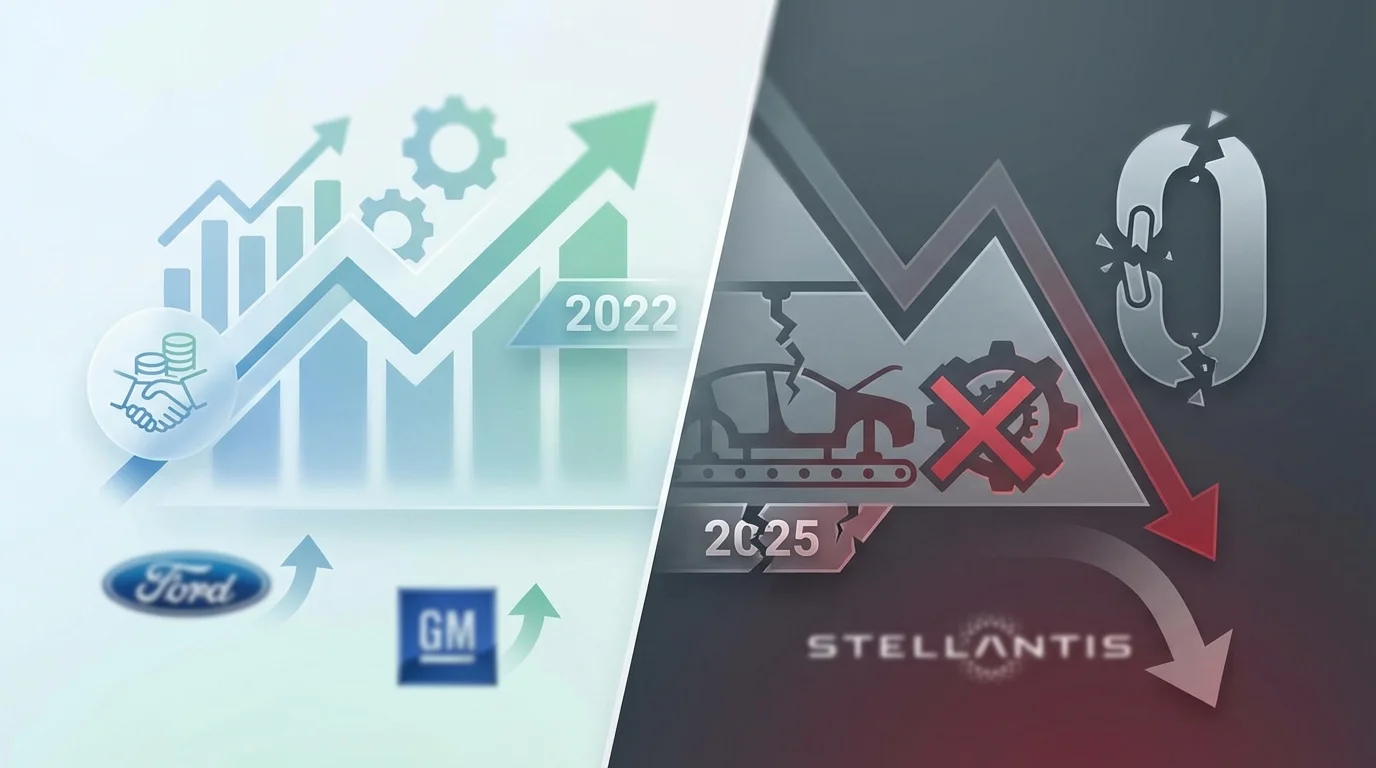Key Takeaways
- Financial advisor fees vary based on the type of service and fee structure, including AUM, hourly rates, flat fees, commissions, and retainers.
- Traditional advisors typically charge higher fees than AI-powered platforms like Intellectia.AI.
- Understanding your financial needs and comparing different advisors and tools can help you find the best fit for your budget.
- AI solutions offer affordable alternatives with advanced features for investment analysis and trading signals.
- Always ensure that the advisor or tool you choose provides value that justifies the cost.
Introduction
Have you ever wondered how much you should be paying for financial advice? With so many options available, from traditional financial advisors to cutting-edge AI-powered platforms, it’s easy to feel overwhelmed. The cost of hiring a financial advisor can vary significantly based on the services you need and the fee structure they use.
In this article, we’ll break down the different types of financial advisor fees, explore what influences these costs, and compare traditional advisors with innovative solutions like Intellectia.AI. By the end, you’ll have a clear understanding of how to choose the right financial guidance for your budget and needs.
Understanding Financial Advisor Fees
When it comes to paying for financial advice, there are several fee structures that advisors use. Understanding these can help you make an informed decision about which type of advisor is right for you.
Assets Under Management (AUM)
This is one of the most common fee structures. Advisors charge a percentage of the total assets they manage on your behalf, typically ranging from 0.25% to 2% per year. For example, if you have $500,000 invested and your advisor charges a 1% fee, you’ll pay $5,000 annually. This structure aligns the advisor’s interests with yours since they earn more as your portfolio grows.
Hourly Fees
Some advisors charge by the hour for their services, which can be beneficial if you only need occasional advice or have a specific financial question. Hourly rates generally range from $150 to $400, depending on the advisor’s expertise and location. This structure allows you to pay only for the time you use, but it may not include ongoing management of your investments.
Flat Fees
For comprehensive financial plans or specific projects, advisors might charge a flat fee, ranging from $1,000 to $3,000 or more, depending on the complexity of your situation. Flat fees are transparent and predictable, making it easier to budget for financial advice.
Commissions
Some advisors earn commissions from selling financial products such as insurance policies or mutual funds, typically at 3% to 6% of the transaction amount. While this might seem cost-effective since you don’t pay directly, commissions can create conflicts of interest, as advisors might recommend products that pay higher commissions rather than those best suited for you.
Retainer Fees
A retainer fee is a flat annual fee paid to the advisor for ongoing services, ranging from $2,000 to $7,500 per year. Retainer fees provide predictable costs and can be suitable for clients who need regular advice and support.
Each of these fee structures has its advantages and disadvantages, and the best choice depends on your specific needs and preferences.
Factors That Influence Financial Advisor Costs
Several factors can impact how much you’ll pay for financial advice:
Complexity of Your Financial Situation
If your finances are straightforward, with a simple investment portfolio and clear goals, you might pay less than someone with multiple income streams, business interests, or complex tax situations. Advisors often charge more for handling intricate financial matters.
Services Required
The range of services you need will affect the cost. Basic investment management might be less expensive than comprehensive financial planning that includes retirement planning, tax optimization, estate planning, and more. Be sure to clarify what services are included in the fee.
Advisor’s Experience and Credentials
Advisors with more experience or specialized certifications, such as Certified Financial Planners (CFPs), may charge higher fees. Their expertise can be valuable, especially for complex financial situations.
Location
The cost of living in your area can influence advisor fees. Advisors in major cities or high-cost regions might charge more than those in smaller towns or rural areas.
Understanding these factors can help you anticipate the costs and find an advisor who offers the services you need at a price you can afford.
Average Costs of Financial Advisors
To give you a better idea of what to expect, here are some average costs based on industry data:
| Fee Type | Typical Cost Range | Notes |
| Assets Under Management (AUM) | 0.25% to 0.50% (robo-advisor); 1% to 2% (traditional) | Depends on assets; e.g., $50 on $10,000 at 0.50%, $500 on $100,000 |
| Flat Annual Fee (Retainer) | $2,000 to $7,500 | Not linked to assets, may vary by complexity |
| Hourly Fee | $150 to $400 | Pay for time needed, no ongoing oversight unless additional payment |
| Per-Plan Fee | $1,000 to $3,000 | One-time fee for a financial plan, no ongoing management |
| Commission | 3% to 6% of investment transaction | One-time fee, may not be in best interest, e.g., mutual fund sales |
In comparison, AI-powered financial tools like Intellectia.AI offer subscription-based pricing. For instance, Intellectia’s plans start at $14.95 per month, which equates to about $180 per year with a yearly subscription offering a 20% discount. This is significantly less than the thousands of dollars you might pay a traditional advisor annually. However, while AI tools provide valuable insights and analysis, they may not offer the same level of personalized advice as a human advisor. Depending on your needs, a combination of both might be beneficial.
Comparing Robo-Advisor vs. Human Advisor Costs
Robo-advisors and AI-powered platforms like Intellectia.AI typically charge lower fees than traditional advisors. While human advisors might charge 1% or more of AUM, robo-advisors often charge between 0.25% and 0.50%. For example, managing a $50,000 portfolio with a robo-advisor at 0.50% costs $250 per year, compared to $500-$1,000 with a traditional advisor. Intellectia.AI goes further by offering subscription plans that don’t scale with your portfolio size, making it even more affordable for investors with larger portfolios.
How to Choose the Right Financial Advisor for Your Budget
Selecting the right financial advisor involves several steps:
Determine Your Needs
Before you start looking for an advisor, clarify what services you require. Are you seeking help with investment management, retirement planning, tax strategies, or all of the above? Knowing your needs will help you find an advisor who specializes in those areas.
Understand Fee Structures
Different advisors use different fee structures, as discussed earlier. Decide which structure aligns best with your preferences and budget. For example, if you prefer predictable costs, a flat fee or retainer might be suitable. If you want the advisor’s interests aligned with your portfolio’s performance, AUM fees could be appropriate.
Consider Robo-Advisors and AI Tools
For those who are tech-savvy and comfortable with digital solutions, robo-advisors and AI-powered platforms like Intellectia.AI can be cost-effective alternatives. These platforms use advanced algorithms to provide investment recommendations, market analysis, and trading signals. Intellectia.AI, for instance, offers features such as AI stock picking, price predictions, and trading strategies, all at a fraction of the cost of traditional advisors. Explore Intellectia.AI’s features to see how they can enhance your investment strategy.
Check Credentials and Reviews
Ensure that any advisor you consider is properly licensed and has a good reputation. Look for certifications like CFP or Chartered Financial Analyst (CFA). Read reviews and ask for references to gauge client satisfaction.
Compare Costs
Don’t hesitate to shop around. Get quotes from multiple advisors to compare their fees and services. This will help you find the best value for your money.
By following these steps, you can find a financial advisor who meets your needs and fits your budget.
Maximizing Value from Your Financial Advisor
Once you’ve chosen an advisor, it’s important to make the most of their services:
Set Clear Goals
Clearly communicate your financial objectives, risk tolerance, and any specific concerns you have. This will help the advisor tailor their advice to your situation.
Regular Reviews
Schedule regular meetings to review your financial plan and investment portfolio. This ensures that your strategy remains aligned with your goals and adjusts to any changes in your life or the market.
Ask Questions
Don’t be afraid to ask questions about fees, investment choices, or any aspect of your financial plan. A good advisor will be transparent and willing to explain their recommendations.
Utilize All Services
If you’re paying for comprehensive planning, make sure to take advantage of all the services offered. This might include tax planning, estate planning, insurance reviews, and more.
By being proactive and engaged, you can ensure that you’re getting the full value of the fees you’re paying.
Navigating the Cost of Financial Advisors
In summary, financial advisor costs can vary widely based on the fee structure and the services provided. Traditional advisors typically charge higher fees, especially for personalized services, while AI-powered solutions like Intellectia.AI offer more affordable options with advanced analytical tools. Understanding your own financial needs, researching different advisors, and considering both the cost and the value they provide can help you make an informed decision.
Conclusion
Understanding the costs associated with financial advice is crucial for making informed decisions about your financial future. Traditional financial advisors offer personalized services but can be expensive, with fees ranging from 1% of AUM to thousands of dollars in flat fees. On the other hand, AI-powered platforms like Intellectia.AI provide advanced analytical tools and investment insights at a much lower cost, making them an attractive option for many investors.
Whether you choose a traditional advisor or an AI solution, the key is to select a service that aligns with your financial goals and budget. If you’re looking for a cost-effective way to enhance your investment strategies, consider exploring Intellectia.AI. With features like AI stock picking, price predictions, and real-time market analysis, Intellectia empowers you to make data-driven decisions. Sign up today and start benefiting from AI-driven financial insights!






